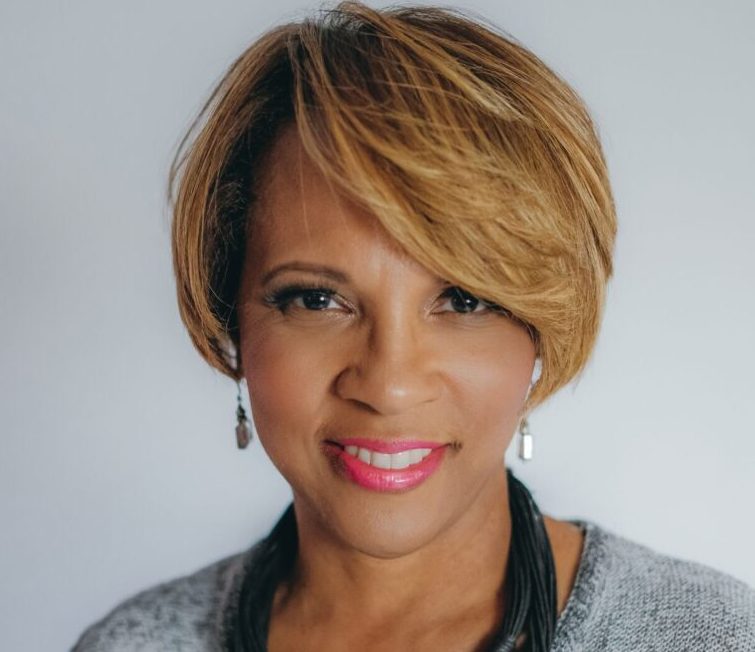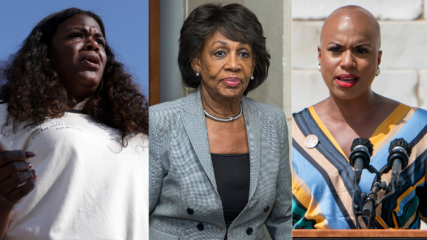Rep. Cori Bush’s eviction triumph reminds us why representation in Congress matters
OPINION: Most members of Congress are still overwhelmingly white, male and wealthy -- women of color like Congresswoman Bush are changing that mold

We’ve all come to know ‘The Squad‘ which consists of four elected members of Congress who also happen to be very progressive women of color: Rep. Alexandria Ocasio-Cortez, Rep. Ayanna Pressley, Rep. Ilan Omar, and Rep. Rashida Tlaib.
They instantly became political superstars during the presidency of Donald J. Trump for their bold, brave in your face unbought and unbossed advocacy of progressive and sometimes politically controversial policies like forgiving student loan debt, climate change policies, anti-poverty programs, and more.
Enter freshman Congresswoman Cori Bush who was once an unhoused single-mom turned activist in Missouri. She came to national prominence amid the Black Lives Matter protests in response to the 2014 fatal police shooting of Michael Brown where Bush, a nurse and a pastor, became a lead organizer in the streets of Missouri. When she decided to run for Congress in 2020, Bush ran on a progressive platform, championing policies including Medicare-For-All and the Green New Deal.

When she pulled off an upset victory over incumbent Democratic congressman William Lacy Clay, she was the presumptive winner in a long-held Democratic district. On election night 2020, Bush said something powerful which informs her to this day, “As the first Black woman and also the first nurse and single mother to have the honor to represent Missouri in the United States Congress, let me say this: To the Black women, the Black girls, the nurses, the essential workers, the single mothers, this is our moment.”
Not unlike Rep. Maxine Waters before her, Bush brings a completely different lens to Congress, politics and policy. Most members of Congress are still overwhelmingly white, male and wealthy. There are now over 100 women in the House of Representatives and, 25 in the U.S. Senate, which makes the 117th Congress the most racially and gender diverse ever. Yet, the fact remains as we have all witnessed this past year, most policy in the United States Congress rises or falls based on the whims of white men like Joe Manchin in the Senate or Republican Minority Leader Mitch McConnell.
As a Pew Research study found in March 2021, among today’s senators and representatives, the overwhelming majority of racial and ethnic minority members are Democrats (83%), while 17% are Republicans. This represents a shift from the 116th Congress, when just 10% of non-white lawmakers were Republicans. Pew’s analysis reflects the 532 voting members of Congress seated as of Jan. 26, 2021. Representative Bush, along with members like The Squad are helping to bring the voices of poor, urban, and left out citizens to the table.

The Pew Study further validates what we already know; that although recent Congresses have continued to set records for racial and ethnic diversity, they have still been disproportionately white when compared with the overall U.S. population. Non-Hispanic white Americans account for 77% of voting members in the new Congress, considerably larger than their 60% share of the U.S. population overall. This gap hasn’t narrowed with time: In 1981, 94% of members of Congress were white, compared with 80% of the U.S. population.
Why does this matter? Because when policy is shaped and enacted by one group, the voices of other more marginalized Americans are left out. Case in point is Congresswoman Bush’s recent victory on the issue of an eviction moratorium extension that she was lobbying Congress to pass before their summer recess, and when that failed she did something we have never seen a sitting U.S. Congressperson do before — she slept on the steps outside in the heat and elements to demonstrate what would be the impact on millions of our fellow Americans if they were indeed evicted with their children this summer.
It was and is a powerful reminder of why it is so important for the “people’s representatives” to actually represent all of the people.
What Bush and her cohorts in Congress are doing is nothing short of trailblazing and life-changing for Black and Brown Americans, as well as poor working whites in America. It also demonstrates why more Black women and men, brown women and men need to run for public office. Our life experiences inform our voices and our votes.
We know what it means to experience lack, poor healthcare, discriminatory lending practices and on and on. And because we do, we can work with our white colleagues to shape policy, many of whom as elected officials do not know that unique experience on any level. So don’t tell me representation doesn’t matter because Rep. Cori Bush just proved it most certainly does.

Sophia A. Nelson is a contributing editor for theGrio. Nelson is a TV commentator and is the author of “The Woman Code: Powerful Keys to Unlock,” “Black Women Redefined.”
Have you subscribed to theGrio’s “Dear Culture” podcast? Download our newest episodes now!
TheGrio is now on Apple TV, Amazon Fire and Roku. Download theGrio.com today!


